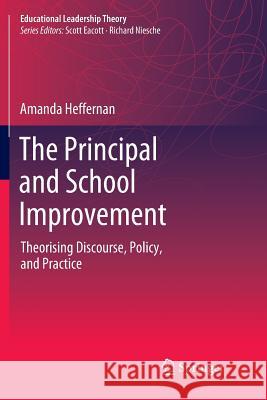The Principal and School Improvement: Theorising Discourse, Policy, and Practice » książka
topmenu
The Principal and School Improvement: Theorising Discourse, Policy, and Practice
ISBN-13: 9789811346422 / Angielski / Miękka / 2019 / 179 str.
Kategorie:
Kategorie BISAC:
Wydawca:
Springer
Seria wydawnicza:
Język:
Angielski
ISBN-13:
9789811346422
Rok wydania:
2019
Dostępne języki:
Numer serii:
000822310
Ilość stron:
179
Waga:
0.28 kg
Wymiary:
23.39 x 15.6 x 1.07
Oprawa:
Miękka











